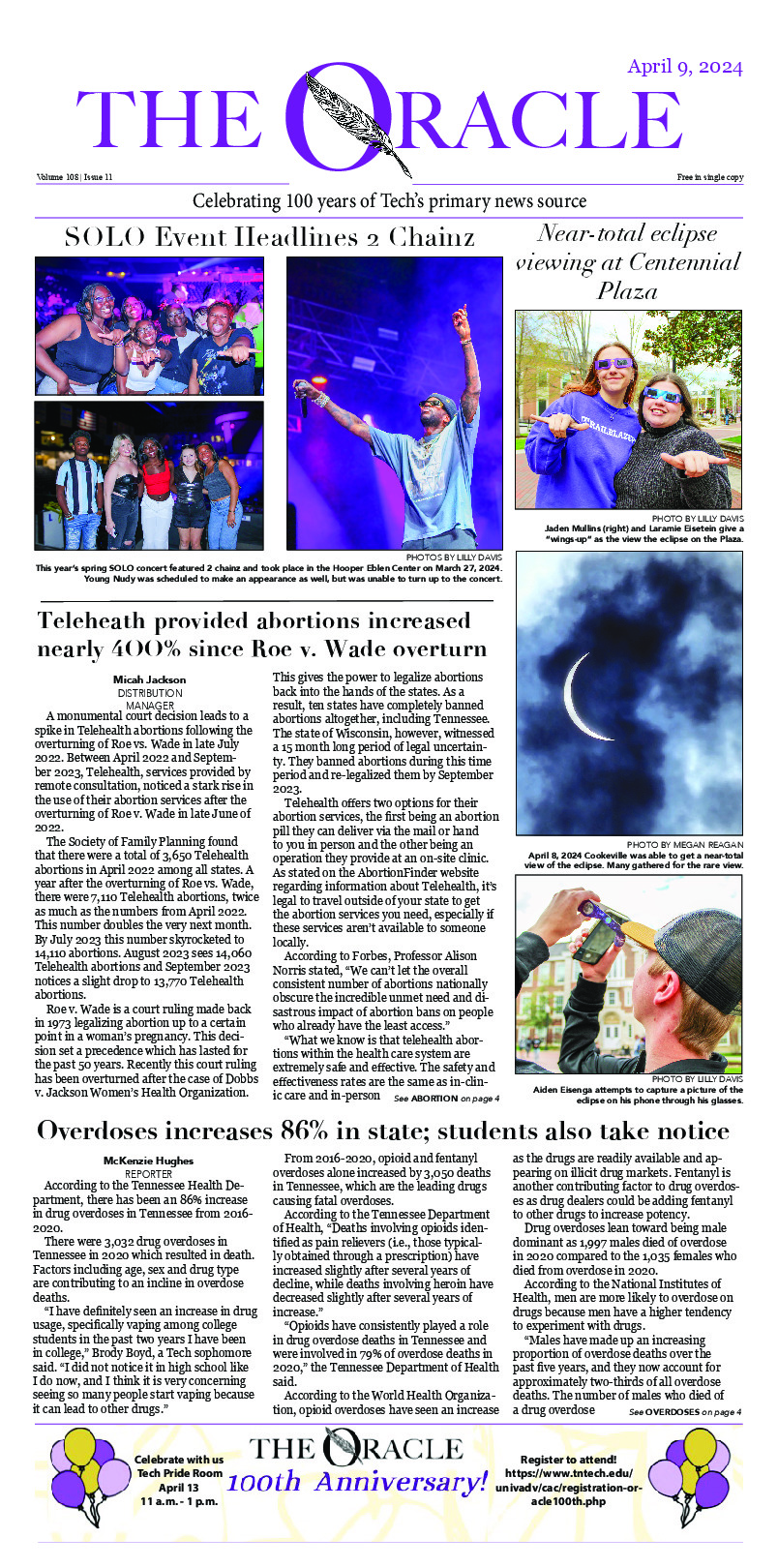As you wait in line for your coffee, you look up from your phone screen, and come to a harsh realization you’re the only person in line paying attention to their surroundings. The hunched over necks and the tapping thumbs begin to make you feel uncomfortable. You realize your mindless feed scrolling has become as second nature to you as your breathing.
There are many benefits to our society’s habitual internet usage, but the repercussions accompanying it may outweigh the positives. When Tech students were asked to describe their relationship with social media and its influence on themselves and others, their answers portrayed the pros and cons to living in an internet reality.
The main question to explore in this matter is if the habitual use of social media is more beneficial or harmful to our society.
“I believe that social media is almost both. We have ways to communicate and receive news about situations that aren’t broadcasted on a normal broadcasting platform. However, social media can also be negative because we hear about false news and we’re constantly looking at posts that take a toll on our mental health,” senior Sierra Bozeman said.
Although social media addiction can affect people of all ages, the constant social media exposure to today’s youth can be viewed as a cause for concern. Tech students were asked if social media platforms should implement, or better enforce, age restrictions to protect the developing minds of the youth.
“I think social media would benefit users with an age restriction to cope with the addiction aspect of it all. Age restrictions would possibly lower the chances of social media addiction if the user is not exposed to it until a later age,” Tech alumni Lucas Cobb said.
Following strict age guidelines could protect children from the exposure to lewd and violent content. If monitored properly, platforms could prevent children from viewing potentially dangerous and traumatizing matters.
Senior Chapel Bell believes social media as a resource to society is beneficial but the trade off for addiction, especially in kids, is not worth it. “Social media should absolutely follow strict age guidelines. Kids shouldn’t have to be using their will power to fight addiction.”
The internet as a whole has a tight grasp on society regardless of age. Our day to day lives rely on the internet for convenience, communication and access to resources, making it easy for adults to become dependent and addicted to it as well.
Addictioncenter.com explains the intentional addictive design of smartphones created to keep users consistently engaged and tethered to their devices.
https://www.addictioncenter.com/drugs/phone-addiction/
Senior Marketing student Daleigh Walker stated, “I feel that I unfortunately have a social media and screen addiction. I feel that I have an urgency to constantly check my phone without any reasoning. I also tend to click on an app and immediately close it just to click on it again. My screen time is also astronomical.”
Regardless of your beliefs on internet usage, it is important to identify ways you can balance your life online and your physical reality.
“I deleted Instagram and Tiktok and I redownload them only when I have something to post and then I delete the apps again,” Bell said.
This prevents her from mindlessly opening the apps and gives her more opportunity to connect with the physical world around her.
“Setting reminders on your phone to take a break is helpful along with limits on screen time. At the end of the day, talking to new people without a phone sounds scary in this technology infested world, but we all need to get back to where actually having conversations is a normalcy,” Cobb suggests.
Having rapid and unlimited knowledge and entertainment at your fingertips should be utilized in moderation and balance with the user’s reality, according to those interviewed.


